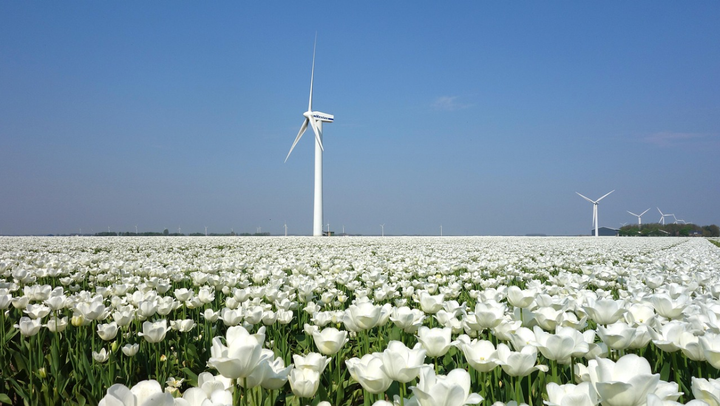Do the positives of democracy outweigh the negatives?

Marcus Jamnadas-Khoda
Democracy dates back thousands of years. Believed to have begun in the city-state of Athens by Cleisthenes, [1] it originally comes from two Greek words: the word ‘demos’ meaning people, and the word ‘kratos’ meaning power. Therefore, democracy can be thought of as ‘power to the people’ – a system of government which is dependent on the will of the people. [2] Whilst having been brought about thousands of years ago, and widely viewed as the most effective system of government in the modern era, democracy is a tough balance between both negative and positive factors. Democracy promotes equality through the ‘right to vote,’ and fosters accountability and fair use of power through the election of representatives and press freedom. However, do these people bring about long-term changes to society? Does democracy ignore minorities?
Democracy promotes equality; the right to vote, fought for tirelessly by minorities, demonstrates this equality, as it views everyone as equal in the eyes of the law, as they all can participate in the running of their country. [3] The Universal Declaration of Human Rights (UDHR) acknowledges this equality; Article 21 of the Declaration guarantees the right to ‘take part in the government of [your] country’ – thereby realising the equality provided by democracy. [4] Inequality is common in undemocratic nations – the lack of participation in their governments can often lead to the undermining and subversion of minority groups. By providing everyone with a single vote, democracy provides all citizens with equal weight in electing government representatives/officials, which again promotes equality amongst the population.
Democracy also helps to foster a culture of accountability and results in a lower likelihood of abuse of power by politicians and global leaders. When looking at both the ‘Freedom of Press Index’ by Reporters without Borders [5], and the ‘Democracy Index’ [6] produced by the Julius-Maximilians-Universität of Würzburg, a clear correlation exists between press freedom and democracy – countries which rank highly on the Democratic Index such as Denmark (0.958/1), also rank highly on the ‘Freedom of Press Index’. As democracy frequently involves the election of government officials and representatives, people in power are less likely to abuse their power whilst in office, as it could result in poor election results in the future. By electing representatives, they become responsible for government policy, adequate public opinion, and appeasing the public by following through on campaign promises. The increased press freedom in democracies around the world demonstrates that media outlets can more openly and unbiasedly criticise government policy, thus fostering a culture of accountability when it comes to politicians.
Democracy lacks political stability; due to the frequent changes in power which often comes with democracy and changes in public opinion, foreign/international policy can constantly change with each government. Such frequent changes in policy concerning business and immigration can dissuade and discourage investment and impede economic growth. These short electoral cycles between political parties can lead to ‘short-termism’ – democracies lack focus on long-term problems, preoccupied with short-term policy approaches, which can provide an ‘easy’ boost in public opinion. [7] This obsession with short-term public opinion ‘boosts’ and present-day problems can be detrimental to our future – an example being so-called ‘24-hour news cycles’, with major parties competing to gain coverage of themselves to shamelessly self-promote their policies, to ‘have’ the top story for that 24-hour ‘block’. [8] This can lead to major long-term issues such as climate change, resource depletion, and overpopulation to remain unsolved. [9] The constant policy changes brought about by democracy have a resounding economic impact and bring about political instability through constant change.
Democracy is the ‘rule of the majority,’ meaning it frequently ignores minorities. Despite universal suffrage in proper democracies, minorities, especially ideological minorities, are often ignored and forgotten about, with major parties focusing on appealing to larger demographics. Due to the nature of democracy, political parties simply attempt to gain enough support to achieve a majority, without accurately representing minority groups.
So, do the positives of democracy outweigh the negatives? The short answer is yes. Despite ignoring minorities and so-called ‘short-termism,’ democracy is the best political system we have got. Compared to autocratic and monarchical regimes like that of Russia, or Saudi Arabia, democracy is the most equal, accountable, and fair way of governing. Democracy helps to provide proper representation to women and people of colour, it holds politicians accountable, and it is free and fair for citizens to use, with these characteristics seeming close to impossible in other regimes. To conclude, democracy does have its faults, but the positives of being able to have representation in government, being treated equally, and having an accountable government far outweighs these.
[1]
Britannica (no date) Where was democracy first practised?, Encyclopædia Britannica. Available at: https://www.britannica.com/question/Where-was-democracy-first-practiced (Accessed: 16 May 2023).
[2]
Council of Europe (no date) Democracy - Manual for Human Rights Education with young people - www.coe.int, Manual for Human Rights Education with Young people. Available at: https://www.coe.int/en/web/compass/democracy#:~:text=The%20word%20democracy%20comes%20from,the%20will%20of%20the%20people. (Accessed: 16 May 2023).
[3]
Unifrog (no date) The importance of democracy, The importance of democracy : Unifrog Blog. Available at: https://www.unifrog.org/know-how/the-importance-of-democracy (Accessed: 16 May 2023).
[4]
United Nations (no date) ‘Universal Declaration of Human Rights’. UN.
[5]
Reporters Without Borders (no date) Index, RSF. Available at: https://rsf.org/en/index?year=2023 (Accessed: 16 May 2023).
[6]
Julius-Maximilians-Universität of Würzburg (no date) Ranking of countries by quality of democracy, Julius-Maximilians-Universität Würzburg. Available at: https://www.democracymatrix.com/ranking (Accessed: 16 May 2023).
[7]
Carnegie Endowment for International Peace (no date) Is democracy the problem? - Carnegie Endowment for International Peace, Is democracy the problem? Available at: https://carnegieendowment.org/2019/01/16/is-democracy-problem-pub-78137 (Accessed: 16 May 2023).
[8]
Marsh , I. (2013) How contemporary politics became trapped in the short term and whether it can be repaired, British Politics and Policy at LSE. Available at: https://blogs.lse.ac.uk/politicsandpolicy/contemporary-politics-is-trapped-in-the-short-term-how-did-it-happen-can-it-be-repaired/ (Accessed: 19 May 2023).
[9]
Glenn, J.C. (no date) 15 global challenges for the next decades, by Jerome C. Glenn, OpenMind. Available at: https://www.bbvaopenmind.com/en/articles/15-global-challenges-for-the-next-decades/#:~:text=Without%20a%20serious%20focus%20on,make%20much%20of%20the%20world (Accessed: 19 May 2023).
[10]
BBC News (no date) EU referendum results, BBC News. Available at: https://www.bbc.co.uk/news/politics/eu_referendum/results (Accessed: 24 May 2023).




Comments ()